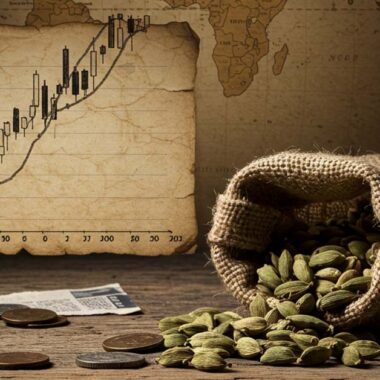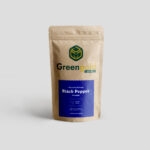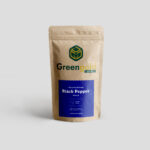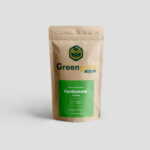Cardamom is a shade-loving crop that thrives in the humid, forested regions of India, Guatemala, Sri Lanka, and Nepal. However, deforestation due to logging, agriculture, and urban expansion is threatening cardamom cultivation. The loss of forest cover not only affects yields and quality but also disrupts ecosystems, water cycles, and soil health.
Let’s explore how deforestation is endangering cardamom farming and what can be done to protect this valuable spice.
🌲 1. Loss of Natural Shade Affects Growth
✔️ Cardamom thrives under dense tree canopies, which protect it from direct sunlight and maintain a cool, moist microclimate.
✔️ Without forest cover, higher temperatures and increased sunlight cause wilting, stunted growth, and lower yields.
✔️ Shade trees also provide organic matter through fallen leaves, which enrich soil fertility.
💡 Impact: Increased heat stress, lower cardamom productivity, and poorer spice quality.
💦 2. Soil Erosion & Loss of Fertility
✔️ Forests prevent soil erosion by stabilizing the land with tree roots.
✔️ When trees are cleared, heavy rains wash away topsoil, depleting essential nutrients needed for healthy plant growth.
✔️ The loss of organic matter reduces soil moisture retention, making it harder for cardamom plants to survive droughts.
💡 Impact: Weaker plants, lower yields, and increased need for fertilizers.
💧 3. Disruption of Water Cycles & Rainfall
✔️ Forests play a key role in attracting rainfall and regulating water availability.
✔️ Deforestation leads to irregular rain patterns, causing droughts or excessive rainfall, both of which are harmful to cardamom.
✔️ Without tree cover, water runoff increases, reducing groundwater levels needed for irrigation.
💡 Impact: Water scarcity for farming and unpredictable harvests.
🦠 4. Increased Pests & Diseases
✔️ Forests maintain a balanced ecosystem where natural predators control pests.
✔️ Deforestation disrupts this balance, leading to increased outbreaks of pests like thrips and root grubs.
✔️ Higher temperatures and humidity from deforestation favor fungal diseases like capsule rot and leaf blight.
💡 Impact: Farmers must use more pesticides, increasing costs and environmental damage.
🐦 5. Loss of Biodiversity & Pollinators
✔️ Cardamom relies on bees and other insects for pollination, which boosts yield and seed quality.
✔️ Deforestation destroys habitats for pollinators, leading to reduced fruit set and lower productivity.
✔️ The loss of native plants and trees affects the overall ecosystem balance, making farming less sustainable.
💡 Impact: Reduced pollination rates and lower harvests.
🚜 6. Expansion of Commercial Agriculture
✔️ Large-scale plantations (tea, coffee, rubber) are replacing traditional cardamom forests, reducing growing space for farmers.
✔️ These monoculture farms demand intensive chemical use, degrading soil and water quality.
✔️ Small-scale cardamom farmers struggle to compete with commercial plantations.
💡 Impact: Land displacement and increased economic hardship for local farmers.
🌿 Solutions for Sustainable Cardamom Farming
✅ Agroforestry: Planting shade trees to mimic natural forests.
✅ Soil Conservation: Using mulching and terracing to prevent erosion.
✅ Reforestation Programs: Restoring degraded lands with native trees.
✅ Water Conservation: Using rainwater harvesting and drip irrigation.
✅ Organic Farming: Reducing chemical use to protect biodiversity.
🌎 Final Thoughts: Protecting Cardamom’s Future
Deforestation is a major threat to cardamom-growing regions, affecting yields, biodiversity, and the environment. To protect this precious spice, farmers, governments, and businesses must work together to promote sustainable farming practices and forest conservation efforts.












